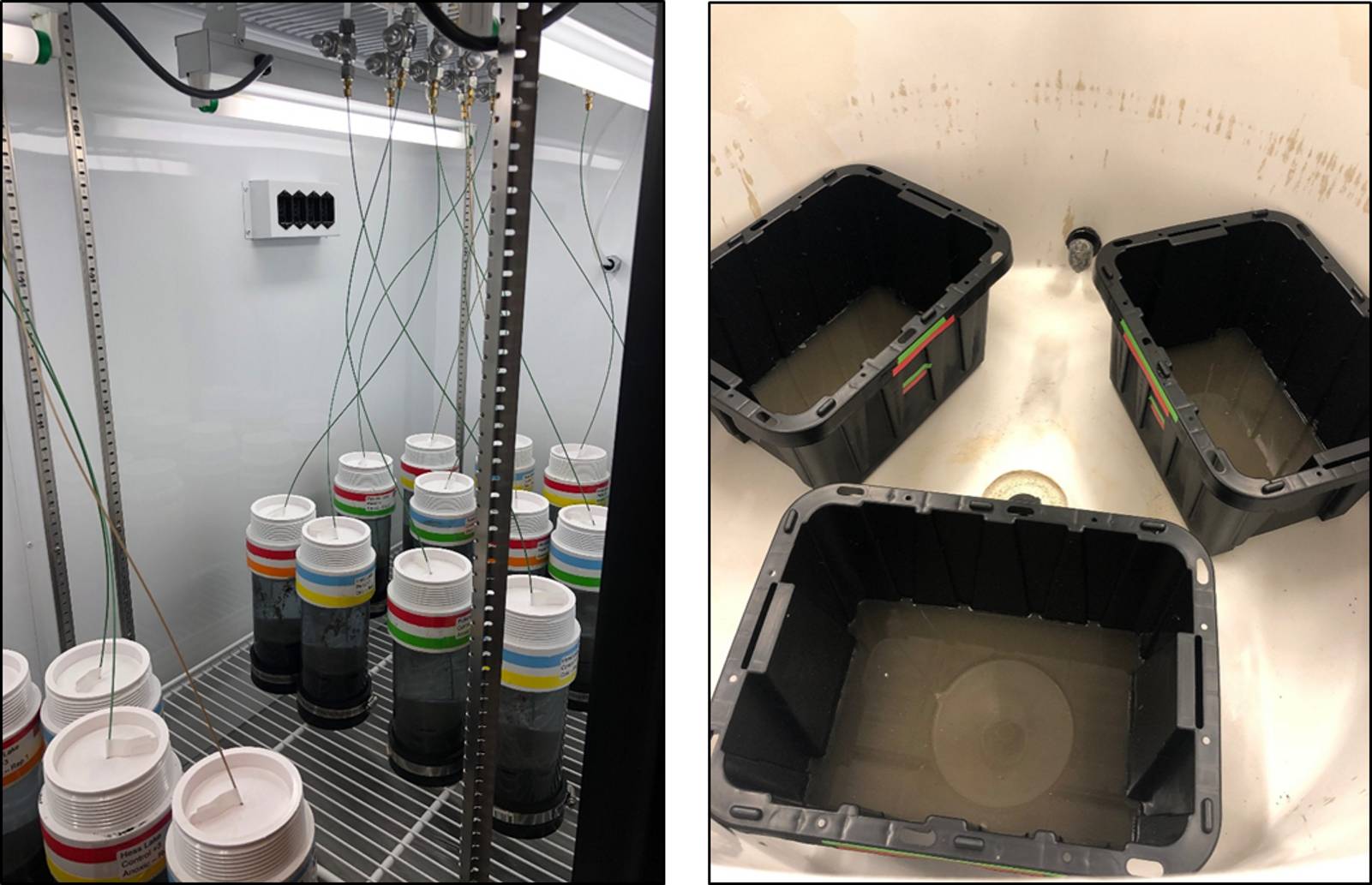Assessment of the Effectiveness of Muck-Digesting Bacterial Pellets
Summary
Many lakefront homeowners are concerned with the development of organic matter (or muck) in their lake, which can result in degraded aesthetics, lake in-filling, and impaired recreational use of the water body. Lake management consultants can offer bacterial pellets that “digest muck” as a management option, and which putatively reduces organic matter, along with other options that are more invasive and expensive, such as dredging.
However, muck-reducing products have not been validated in the peer-reviewed scientific literature. A mechanistic explanation by which pelleted bacteria consume and reduce organic matter is not available publicly, nor is a detailed composition of the pellets. The pellets used in the current study, Mukk Busster (Cygnet Enterprises, Inc., manufactured by AirMax), are stated to release bacteria as well as the enzymes lipase, protease, amylase, and cellulase to break down excess organic matter.
We assessed the effectiveness of these pellets in reducing organic matter through small scale environmentally-controlled experiments in tubes and larger scale experiments in storage bins, all within a lab setting. The advantages and limitations to our experimental approach are addressed in our full report. In addition to analyzing the effectiveness of Mukk Busster pellets, we wanted to determine if oxygen availability and temperature impact the efficacy of these muck-digesting pellets. We subjected pelleted and non-pelleted sediments to both oxic and anoxic conditions at ambient and ambient+3ºC temperatures in sealed tubes, using native lake water from which the sediment was collected. We also monitored water quality parameters to identify potential impacts of pellet composition on water quality after application. In order to test these pellets over a larger surface area, we conducted a second experiment using larger containers (“bins”), under ambient room temperatures and darkened environmental conditions. Both the tube and bin results are included in this report.

Funding for this project was provided through the Brooks Lake Improvement Board, the Hess Lake Improvement Board, and the Pickerel Kimball Lake Improvement Board through the Newago Drain Commissioner’s office. We also acknowledge the support and planning of Erick Elgin from the Newago Co. MSU Extension Office.
Contacts
Al Steinman, Project Manager: [email protected]
Maggie Oudsema, Technician: [email protected]

